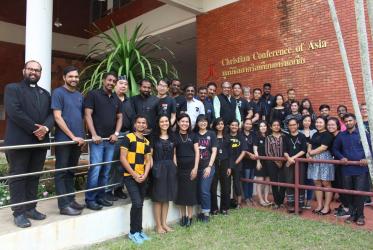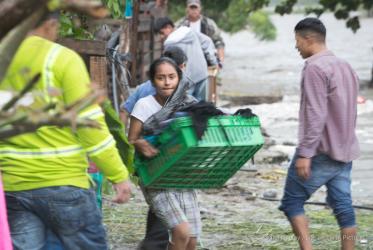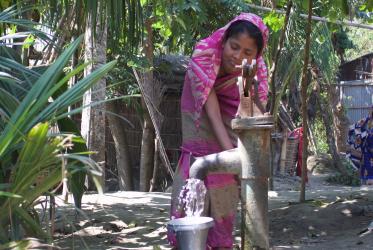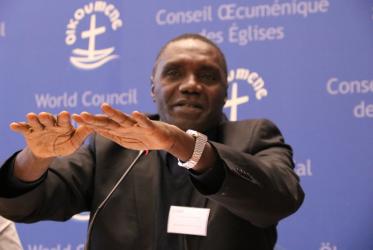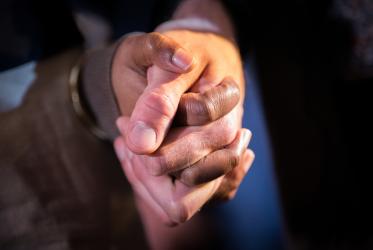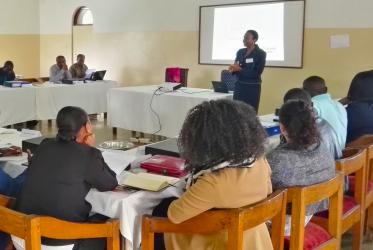Displaying 1 - 20 of 25
WCC Eco-School begins in Crete
15 November 2023
World Social Forum convenes to “express and practice solidarity”
28 January 2021
WCC Eco-School 2020 for Pacific region is further postponed
14 January 2021
WCC condemns massacre of farmers in Philippines
12 April 2019
Agreement works toward food security in South Sudan
23 February 2019
WCC calls for Global Day of Prayer to End Famine
31 May 2018
Forum strengthens ecumenical commitment to diakonia
12 October 2017
African youth takes stand at first ever WCC Eco-School
03 August 2017
G20 summit: call to pray for peace in Hamburg
07 July 2017


